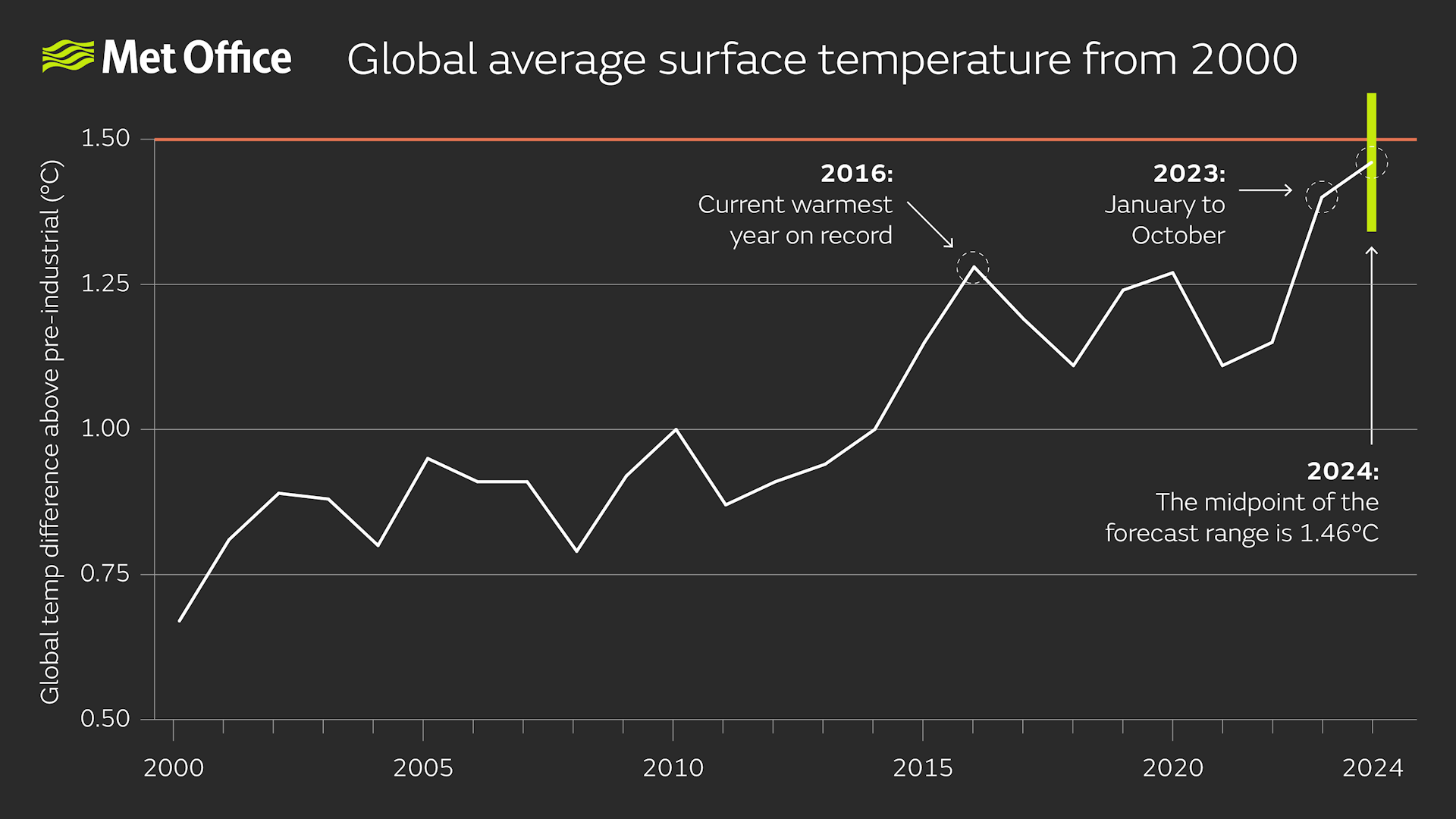2024: First chance of 1.5 °C year
Author: Grahame Madge
00:01 (UTC) on Fri 8 Dec 2023
The Met Office outlook for global temperature suggests 2024 will be a further record-breaking year, expected to exceed 2023, which is itself almost certain to be the warmest year on record.
The anticipated two-stage spike in global temperature has received a temporary and partial boost by the current El Niño event warming the tropical Pacific. But, says the Met Office’s Prof Adam Scaife: “The main driver for record-breaking temperatures is the ongoing human-induced warming since the start of the Industrial Revolution.”
Prof Scaife continued: “With a month to go, 2023 is almost certain to be the warmest year on record, exceeding the current record set in 2016 which was also boosted by an El Niño event.”
Global average temperatures are measured as the difference between 1850-1900: a proxy for the Industrial Revolution. The global average temperature for 2023 is expected to be below 1.5 °C, but next year’s forecast suggests for the first time that values of 1.5 °C or above cannot be ruled out.

The average global temperature for 2024 is forecast to be between 1.34 °C and 1.58 °C (with a central estimate of 1.46 °C) above the average for the pre-industrial period (1850-1900): the 11th year in succession that temperatures will have reached at least 1.0 °C above pre-industrial levels.
The Met Office’s Dr Nick Dunstone, who led the forecast, said: “The forecast is in-line with the ongoing global warming trend of 0.2 °C per decade, and is boosted by a significant El Niño event. Hence, we expect two new global temperature record-breaking years in succession, and, for the first time, we are forecasting a reasonable chance of a year temporarily exceeding 1.5 °C.”
Dr Dunstone concluded: “It’s important to recognise that a temporary exceedance of 1.5 °C won’t mean a breach of the Paris Agreement. But the first year above 1.5 °C would certainly be a milestone in climate history.”
The Paris Agreement is widely accepted to refer to a long-term average of 1.5 °C, rather than an individual year. A Met Office-led paper published in the journal Nature earlier this month suggested a means of immediate recognition when the Paris Agreement guard rail has been reached.
The current year has seen many record-breaking months for global temperature. The latest 2023 observed WMO estimate (covering January-October) is +1.40 °C and is exceeding the Met Office’s forecast issued at the end of 2022 (1.08 °C to 1.32 °C with a central estimate of 1.20 °C).
Commenting on the forecasts Prof Adam Scaife concluded: “In addition to the El Niño event, we have anomalous high temperatures in the North Atlantic and Southern Ocean and together with climate change, these factors account for the new global temperature extremes.”




